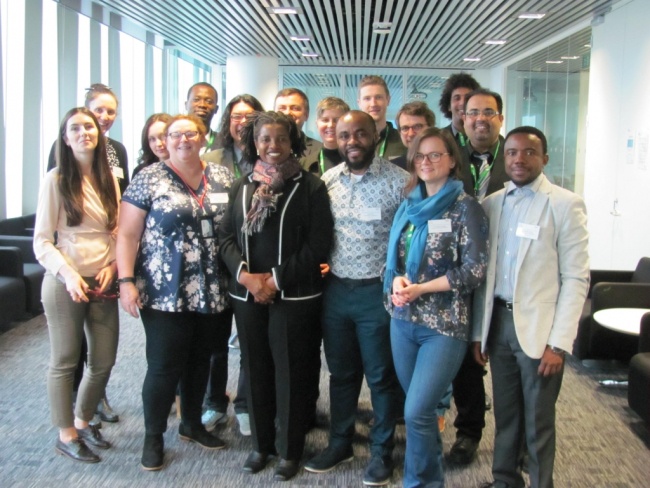The first workshop of the SciBAr Installations Project, took place between 10-12th January, at the Sir Duncan Rice Library, University of Aberdeen. The SciBAr Installations network draws together academics from law and other disciplines to undertake a review of the governance and regulation of threats and impacts of and to Arctic offshore energy installations.
Professors Elizabeth Kirk (PI) and Tina Hunter (Co-I) lead the 2 day workshop supported by an interdisciplinary advisory panel, which encompasses early career academics as well as senior colleagues at a number of UK universities. The advisory panel consists of:
- Professor Amin Al-Habaibeh, (Nottingham Trent University) Professor of Intelligent Engineering Systems, Director of University Alliance DTA-Energy; and
- Dr Michael Brown, (Dundee University) geotechnical engineering;
- Dr Kate Gormley, (Aberdeen University) environmental monitoring, policy and decommissioning; marine spatial planning and spatial analysis;
- Professor Frithjof Kuepper, (Aberdeen University) biochemistry and biodiversity of marine algae and microbes;
- Professor Ana Ivanovic, (Aberdeen University) civil engineering (soil – subsea structure interaction);
- Professor David Ong, (Nottingham Trent University) the law on the outer continental shelf and joint development in the context of offshore installations;
- Dr Daria Shapovalova, (Aberdeen University) regulating marine and air pollution in the Arctic States.
- Professor Ursula Witte (Aberdeen University) consequences of anthropogenic impacts and climate change for arctic marine food webs and ecosystem functioning;
The context of the workshop was as follows:
The threats and risks associated with offshore installations, and potential installations in the Arctic are little understood. This, coupled with the many approaches to governance and regulation of such installations, points to the need for detailed, science-based regulation rooted in sound governance systems.
The SciBAr Installations network draws together academics from law and other disciplines to undertake a review of the governance and regulation of threats and impacts of and to Arctic offshore energy installations. The primary focus is the degree to which understanding from science, social science and engineering can and must influence policy making to ensure the sustainability of Arctic energy activities whilst incorporating best practice regulation.
The workshop was designed to support expansion of the network and to begin the task of identifying gaps in knowledge and developing funding applications to tackle those gaps. Following the workshop, a paper is being developed discussing the gaps identified over the last 2 days.
The 2 key outcomes from the event were:
- An overview of the potential risks and impacts associated with the construction and operation of offshore installations in the Arctic, which drew on expertise from marine biology, engineering, environmental science, marine resources management, oceanography and social sciences alongside inputs from stakeholders. This overview, was used to map the potential regulatory and governance solutions to these risks drawing on expertise from law. It is hoped that this outline will be of use to policy makers and researchers
- An outline programme of research has been developed to enhance understanding of the risks, impacts and governance solutions to those risks identified in output A. This research programme will also include the testing of governance and regulatory solutions against the science to enable evidence–based approaches to the regulation of Arctic energy installations.
Professor Kirk has previously led and participated in interdisciplinary research teams of lawyers, physical and social scientists. She has co-organised transdisciplinary workshops and conferences bringing together professional bodies, stakeholders and various disciplines. In addition, Professor Kirk brings world-leading understanding of the impact that forms of governance have on compliance and hence on the effectiveness of law. Professor Hunter has academic qualifications in geosciences, information management, research and law, and has researched and consulted in numerous Arctic jurisdictions, bringing together the scientific and legal dimensions within projects. In addition, Hunter brings a world leading depth of understanding of the relevant science and law connection in the regulation of offshore and also has experience of running conferences and workshops.






